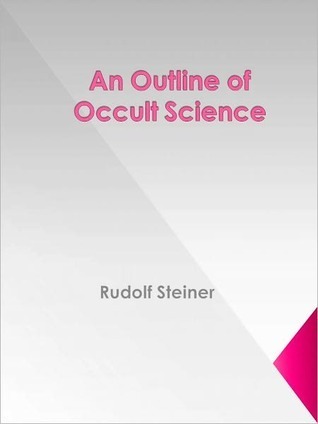What do you think?
Rate this book


The anthroposophy of Rudolf Steiner is not a theoretical system but the results of research based on direct observation. Because his research was so vast and conducted over such a long period of time, no single book can be said to contain the whole of his spiritual teaching. However, of all his books, this one perhaps comes closest. Steiner even referred to it as "an epitome of anthroposophical spiritual science." In a systematic way, he lays out fundamental facts concerning the nature and constitution of the human being and, in chronological order, the history of the universe and humankind.
Whereas the findings of natural science are derived from observations made through the senses, the findings of spiritual science are "occult," inasmuch as they arise from direct observation of realities hidden to ordinary human perception. Nevertheless, these elements of humanity and the universe form the foundation of the sensory world. A substantial part of this important work describes the basic training needed to make such spiritual observations.
Although Occult Science is not all-inclusive, it is indispensable to any serious student who wishes to master Steiner's extraordinary philosophy and methods of inner development.
184 pages, Kindle Edition
First published January 1, 1910